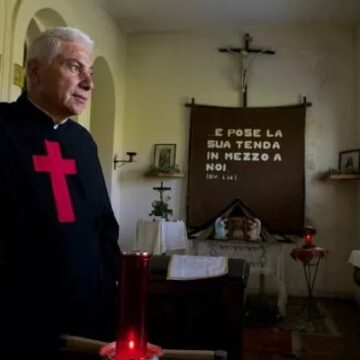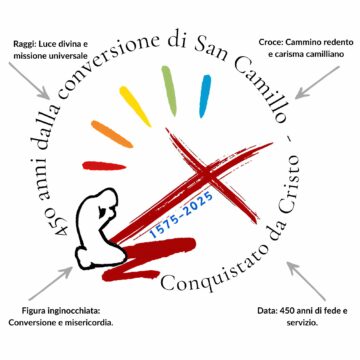Missione Salute March-April year XXX n. 2
Conscientious objection is the possibility of not obeying a human law that is against the law of God, that is to say it is a rejection of behaviour that is against one’s own morality. It is subjective and depends on the education that people have received, their religious creed and their beliefs.
The phrase ‘conscientious objection’ was used to begin with by Christian writers of the fourth century AD to refer to believers who refused to worship the Roman emperor as a god.
In more recent times, the phrase appeared amongst the English to refer to very popular opposition within the Churches of the Protestant Reformation. This is the first meaning to which dictionaries and encyclopaedias in English refer.
A broader approach extends the concept of ‘conscientious objection’ to – amongst other issues – the death penalty, abortion, euthanasia, the decimation of animal species, and damage to the environment.
The Voice of God
Biblical and patristic tradition has always interpreted the conscience as the ‘voice of God’. Normally, the Magisterium of the Church interprets it in this way as well. The encyclical Veritatis splendor (St. John Paul II, 6 August 1993), at n. 58, observes: ‘The importance of this interior dialogue of man with himself can never be adequately appreciated. But it is also a dialogue of man with God, the author of the law, the primordial image and final end of man’. From this idea of the moral conscience derives the phrase ‘conscientious objection’ as the possibility of not obeying a human law that goes against divine law. In the Acts of the Apostles we have a fine example of conscientious objection when Peter in front of the Sanhedrin declares: “We must obey God rather than men” (Acts 5:29).
 Another meaning of the concept of ‘conscientious objection’ is to be found in the field of contemporary law and contemporary philosophy of law which see it as a sort of ‘disobedience’ of the law. One disobeys a law on the basis of an ethical or religious principle or because of motivations of a political kind (civil disobedience).
Another meaning of the concept of ‘conscientious objection’ is to be found in the field of contemporary law and contemporary philosophy of law which see it as a sort of ‘disobedience’ of the law. One disobeys a law on the basis of an ethical or religious principle or because of motivations of a political kind (civil disobedience).
Conscientious objection has acquired today a special relevance in relation to laws that are considered unjust. This is the case when the civil law imposes action that is seen as morally incorrect because it goes against what the conscience of a person sees as morally correct in terms of ethical truth.
Starting with the ‘Universal Declaration of Human Rights’ of 1948, freedom of personal conscience has had a growing role and growing public recognition. Freedom of conscience together with freedom of thought and religion are the three fundamental human rights that the legislation of a State can never deny.
Towards a Culture of Life
We live in a context that is increasingly pluralistic. We increasingly often coexist with ‘unusual moralities’. In this reality, we often have to coexist with laws that in their essence deny the gospel values of promoting and defending life. For example, a professional, a Christian researcher or scientist, can say no to abortion, to euthanasia, to research on human embryos or their destruction, even where civil laws allow these practices, taking advantage of the fundamental right of ‘conscientious objection’.
In a social context that is increasingly secularised and ‘liberal’ towards the technological sciences, and pluralistic in the field of human and religious values, we can refer to the words of the Pope (12 April 2016) on ‘persecution that takes away from man his freedom, and also conscientious objection’.
In order to promote an authentic culture of life we must ‘ensure that conscientious objection is placed within legislation and that it is respected by public authorities’ (n. 469).












Camillians on Facebook
Camillians on Twitter
Camillians on Instagram